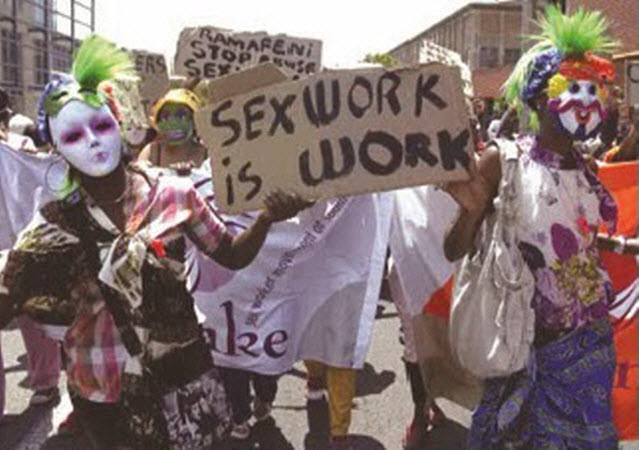There are no products in your shopping cart.
| 0 Items | £0.00 |

 NIGERIAN sex workers have won a landmark legal judgement after an Abuja high court ruled that they are involved in legitimate work as no Nigerian law forbids them from engaging in their trade.
NIGERIAN sex workers have won a landmark legal judgement after an Abuja high court ruled that they are involved in legitimate work as no Nigerian law forbids them from engaging in their trade.
According to the United Nations Programme on HIV and Aids (Unaids), it is estimated that there are about 103,506 prostitutes working in Nigeria. Legally, Nigerian law is very vague about prostitution as although the criminal system prohibits national and trans-national trafficking of women for commercial sex or forced labour, it is vague about what if such work is performed by an independent individual who operates on his or her own accord without the use of pimps or a brothel.
Across northern Nigeria, prostitution is unlawful in the 10 states which observe the strict Islamic Sharia penal code. In southern Nigeria, the activities of pimps, underage prostitution and the operation or ownership of brothels are penalised under sections 223, 224, and 225 of the Nigerian Criminal Code.
Due to the vast grey area involved, several commercial sex workers who were arrested in 2017 took the matter to court, claiming they were carrying out legitimate business. In her ruling, Justice Binta Nyako ruled that no Nigerian law prohibited prostitution and awarded damages to the 16 women who were arrested for prostitution in 2017.
Babatunde Jacob, the lawyer representing the women, said that the court upheld that security agents violated the rights of his clients when they broke into their homes alleging that they were sex workers. Legal experts believe the judgment is likely to have far-reaching implications.
Security agencies arresting sex workers is a common occurrence across Nigeria and in a crackdown in May this year, more than 60 women were arrested in Abuja for prostitution. It is not yet clear if the government will appeal the decision as it may lead to the filing of numerous claims for compensation.